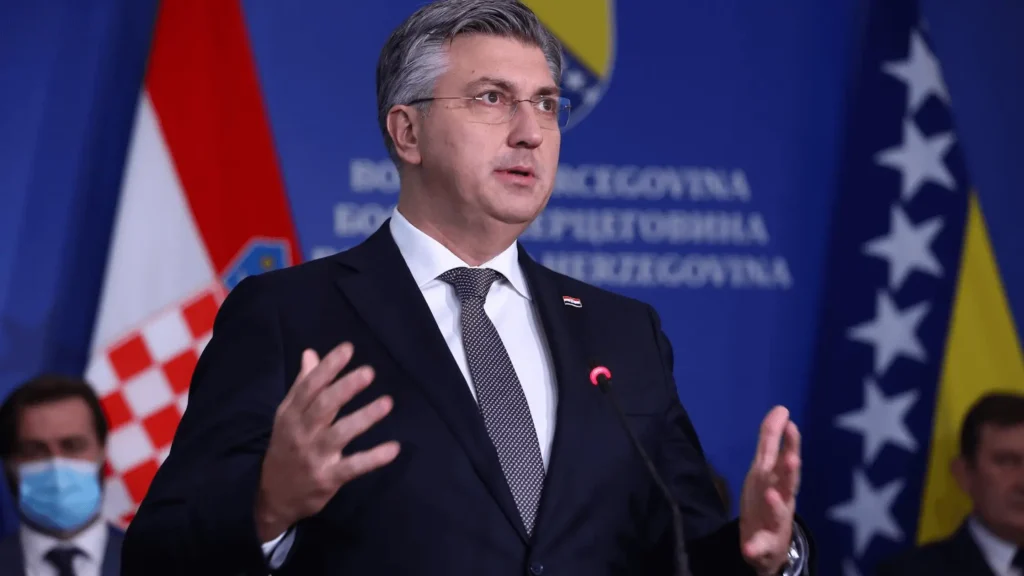“Parliamentary elections should not be held in October this year as scheduled without changing the election law,” Plenković said.
Croatia’s position on the matter is contrary to the document prepared by the European External Action Service for a discussion on Bosnia and Herzegovina due to be held at a meeting of EU foreign ministers on Monday.
The document says that negotiations should continue in order to reach an agreement on the constitutional and electoral reform in Bosnia and Herzegovina, and that elections should be held as scheduled regardless of the outcome of the talks.
“The Croatian position is very clear – it’s better to give more time for negotiations and postpone the elections if necessary than carry on under the present system because that would be bad for Bosnia and Herzegovina and disastrous for the Croats in Bosnia and Herzegovina,” the prime minister said.
“If the present system remains in place, we know in advance what will happen. We do not want electoral engineering to happen again,” he added.
Plenković called on the Bosnian Croat and Bosniak parties to focus constructively on the electoral reform so that the Croats would get guarantees that they would be able to choose their representatives in the state presidency and upper house of parliament. He said that Croatia, as a friend and ally, would do all in its power to improve mutual relations and help Bosnia and Herzegovina on its EU path.
Plenković said that an agreement on the electoral and constitutional reform would be beneficial for the functioning of the country, its territorial integrity, mutual respect, and for everyone in Bosnia and Herzegovina to feel good.
Explaining why some of the representatives of the international community, including the EU, had different views about Bosnia and Herzegovina from Croatia’s, he cited the lack of understanding of the complexity of the internal structure of Bosnia and Herzegovina and the need to simplify it, which he said would not lead to anything good.
Plenković said that those who did not know the situation in Bosnia and Herzegovina well enough were focusing on three points, the first being a cease-fire agreement that later became the Dayton peace agreement, which became the country’s constitution. The second point is the ruling by the European Court of Human Rights in the Sejdić-Finci case and other cases which called for an end to discrimination against three percent of citizens of Bosnia and Herzegovina who are not members of any of the three constituent peoples, as 97 percent of citizens identify themselves as Bosniaks, Serbs or Croats. The third point is present efforts to simplify the whole situation.
“When someone who is not from Bosnia and Herzegovina or neighboring countries comes and wants to see how the country is functioning, they see a structure they have not seen anywhere else. They realize that there is one state, two entities, 10 cantons in one of the entities, houses of peoples, and so on. And then the logic of simplification comes in, but in that simplification, you cannot sideline the rights of one of the constituent peoples who voted for Bosnia and Herzegovina’s independence in 1992,” Plenković said.
He said that the Venice Commission had favorably assessed the Croat proposal to amend the constitution, under which in elections for the state presidency one representative of the Croats and other ethnic groups and one representative of the Bosniaks and other ethnic groups would be elected from the Bosniak-Croat Federation entity and one representative of the Serbs and other ethnic groups from the Serb entity of Republika Srpska.
“That would resolve everything. The constituent peoples would be retained, the others would be included and no one would be discriminated against, and everyone would be allowed to stand as a candidate,” Plenković said.
For more, check out our politics section.









